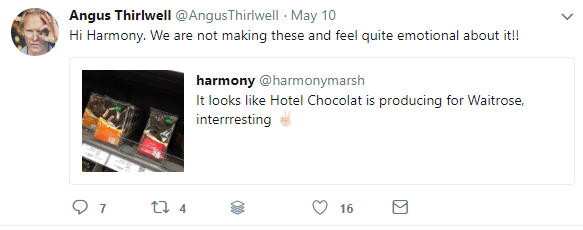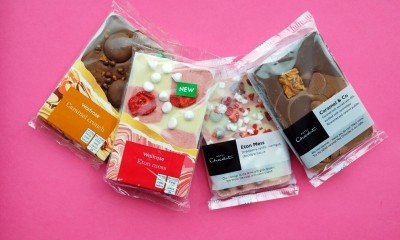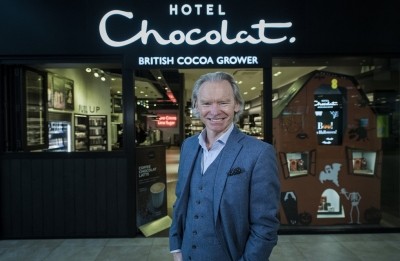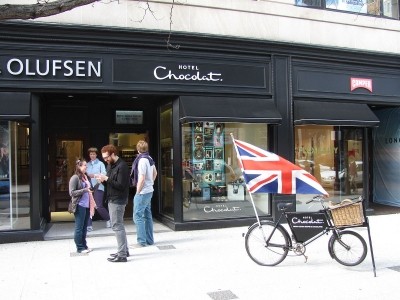Trademark dispute
Trademark lawyer weighs in on Hotel Chocolat’s dispute with Waitrose
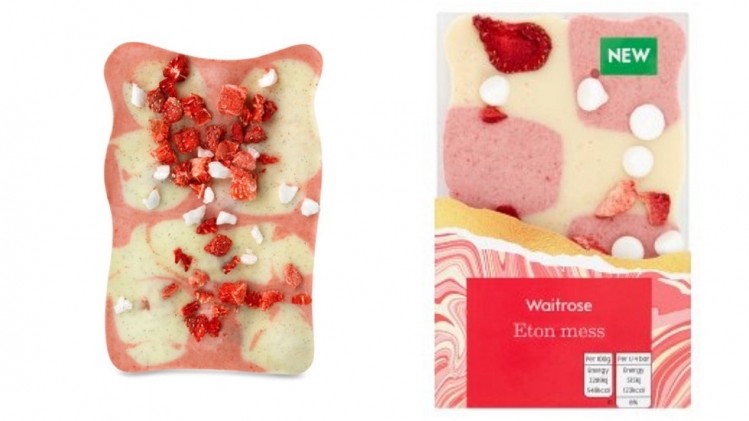
Hotel Chocolat’s founder, Angus Thirlwell, recently warned Waitrose to withdraw its Luxury Chocolate Bar, and publicly offered customers, who already bought Waitrose’s products, free chocolate in exchange for their previously purchased bars.
“Imitation is the sincerest form of flattery apparently, but Waitrose, this crosses the line. As well as breaching our registered design mark, designed to protect innovation,” Thirlwell tweeted.
Gill Smith, Waitrose’s spokesperson, said in a statement, “we are confident we have not infringed any of Hotel Chocolat’s designs and we refute all of the allegations made by Mr. Thirlwell and Hotel Chocolat.
“However, it is not in our interest to enter into a protracted legal dispute with Hotel Chocolat and so we are corresponding with them directly about these issues,” she added.
Different from Toblerone-Poundland case
This is not the first high-profile dispute between a chocolate manufacturer and a retail chain in the UK over product appearances.
The British discount retailer Poundland launched Twin Peaks chocolate last year. It, however, delayed the launch after Mondelēz reportedly issued a legal letter warning that its product mimics Toblerone’s “unique and distinctive” shape.
However, Dafydd Bevan, a London-based trademark lawyer working for Marks & Clerk Solicitors, noted the Hotel Chocolat-Waitrose conflict is more about “registered designs” than “registered trademark.”
“My understanding is that Mondelēz (owner of Toblerone) owned a registered trademark for the shape of Toblerone and it was on this basis they objected to Poundland’s product,” he said.
“A registered trademark is registered in respect of a particular class of goods, for example, chocolate or confectionery, and must consist of a sign capable of distinguishing the goods of one company from those of another.
“So you can think of it as a kind of ‘badge of origin.’ When the registered trademark is a 3D shape as it was in the Toblerone case, the shape itself must be capable of making you think that that particular arrangement of triangular chocolate comes from Toblerone,” said Bevan.
Registered design and shoppers’ confusion
Bevan explained: “A registered design, as in the Hotel Chocolat-Waitrose case, is concerned with protecting the appearance of a product in its own right, regardless of whether it amounts to a badge of origin and it is not tied to a particular class of goods.
“All that matters is the appearance – a photo or drawing of the design of the product is registered and this entitles them to prevent the manufacture or sale of any product that creates a similar ‘overall impression’ to that registered design.”
That said, Hotel Chocolat needs to prove that Waitrose’s chocolate has a similar overall impression to its registered design to win the potential case, suggested Bevan.
But even without its registered designs, Bevan added Hotel Chocolat could still succeed by showing Waitrose made the consumer think its chocolate bars are produced by Hotel Chocolat.
“I imagine Hotel Chocolat will be scouring the press and social media for examples of actual confusion in the minds of the public that Waitrose is being supplied by Hotel Chocolat,” he said.
It did happen.
A shopper called “harmony” tweeted, “it looks like Hotel Chocolat is producing for Waitrose.” Then Thirlwell directly responded, “We are not making these and feel quite emotional about it.”
Waitrose’s possible argument
Waitrose, however, may not be doomed to lose in a legal fight with Hotel Chocolat, Bevan noted.
Even if Hotel Chocolat has registered its designs, he said Waitrose could still argue the registration is invalid as long as it can prove it was not entirely new when it was registered.
“It may be that Waitrose has already done some digging to find some examples of pre-existing chocolate bars that look similar to the Hotel Chocolat’s, or there may be some intensive searching going on to find such examples with a view to invalidating the Hotel Chocolat registered designs,” he said.
Additionally, if Hotel Chocolat has not registered “the particular types of chocolate bar that are alleged to have been reproduced by Waitrose,” then Waitrose would not infringe even if the products themselves look like them, added Bevan.
“So precisely, what has been registered will be key,” he said.
